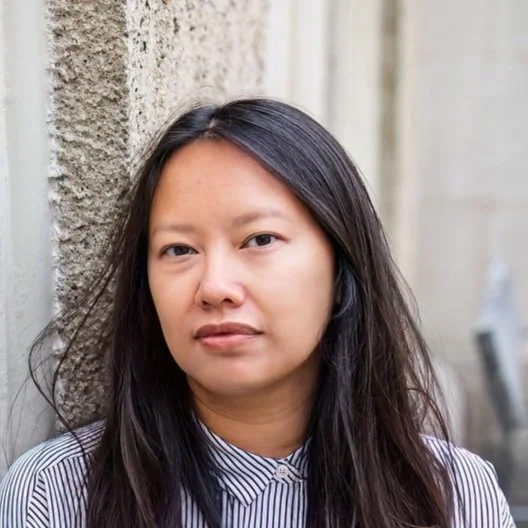To See and Write Vietnam: Socialist Regimes of Visibility in Poland
Thục Linh Nguyễn Vũ | 24 September 2024 | 6pm Gulf Standard Time (4:00 PM CET) | Zoom (Webinar)
Literature and documentary photography on decolonization and the postcolonial period played an essential role in forging global socialist connections, a sense of connectivity, and in shaping grassroots imaginaries of socialist anti-colonialism. These discursive moorings brought closer to the audiences in Eastern Europe the far-away conflicts and developments that came with decolonization and life amid war in Southeast Asia. As part of the then-newly established political contacts between Poland and Vietnam, Polish professionals were delegated to Vietnam, leading to a series of books, memoirs, and reportages covering the situation on the ground in Vietnam.
This presentation analyzed the largely forgotten travelogues and documentary photographs that were published in state-socialist Poland by journalists and diplomats who had spent time in Vietnam amid and, subsequently, after unification. It unpacked how the postcolonial period—especially after the Second Indochina War—was narrated and understood in these publications and photographs. Vacillating between different genres and political commitments, the travelogues and documentary photography point to shifting boundaries of strongly context-dependent knowledge production. Chronicling prolonged wartime violence and hardship as well as the challenges that came with postcolonial restructuring and social upheaval, this discursive production around the war and post-war period in Vietnam used the power of literary narrative to humanize and translate to another context the experience of a seemingly perennial war without victimizing Vietnamese society.
Implicit in these travelogues and documentary photographs are the following questions: Were these overtly political yet empathetic accounts immune to an Orientalizing gaze and framing? Does the empathy towards war-torn Vietnamese society, seemingly based in an ideal of socialist brotherhood, suffice as a tool for self-validation and motivation? How exactly did the Vietnamese version of the story come to matter in these representations?
ABOUT THE SPEAKER
Thục Linh Nguyễn Vũ is a German Kennedy Memorial Fellow at the Minda de Gunzburg Center for European Studies (CES) at Harvard University and a postdoctoral fellow at the Research Center for the History of Transformations (RECET) at the University of Vienna.
She is a cultural historian with a strong interest in interdisciplinary approaches. She is currently working on two book manuscripts: one on the cultural history of everyday life and of political mobilization in a dissident milieu in socialist Poland, and a second one on contacts between Poland and Vietnam after 1955.
Nguyễn Vũ has published in Cahiers du Monde Russe, East European Politics and Society, and History Workshop Journal, as well as in non-scholarly outlets such as TAZ and krytykapolityczna.pl.

